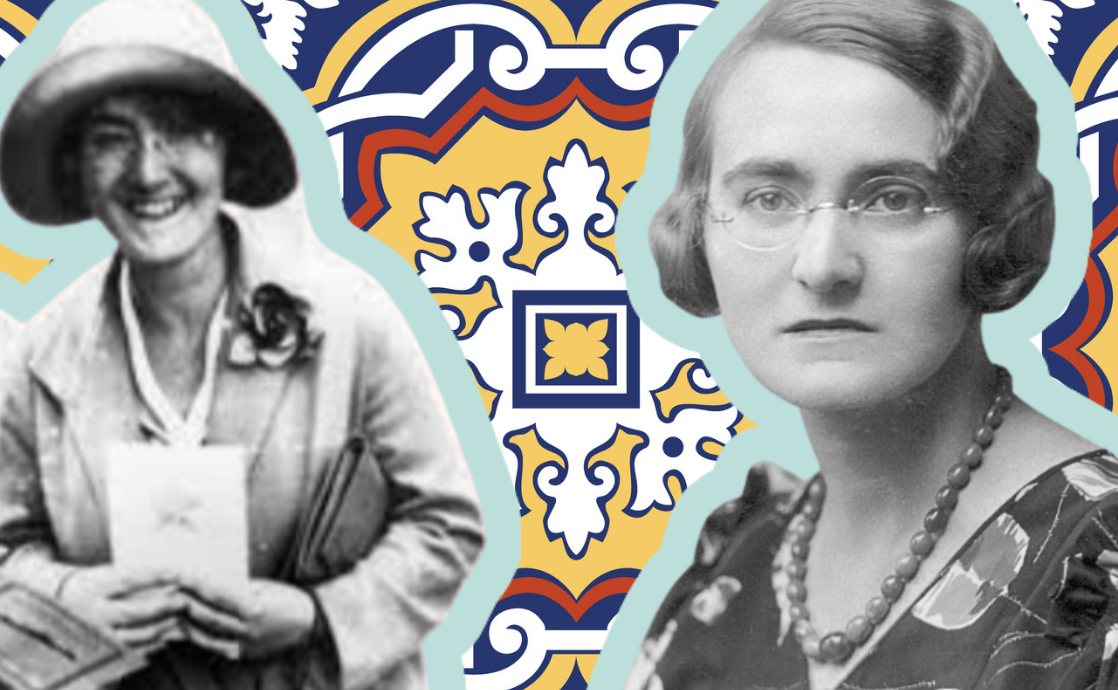In the annals of spiritual history, few narratives resonate with the profound elegance and altruistic fervor embodied by Lidia Zamenhof, a remarkable figure whose life epitomizes the Bahá’í teachings. Her journey is a compelling testament to the unfathomable potential of selflessness, woven with threads of compassion, intellect, and fortitude. To unravel the layers of her legacy is to traverse the very essence of what it means to be a selfless hero—a beacon illuminating the path towards unity and love.
Born into a milieu already steeped in the ethos of human solidarity, Lidia Zamenhof was the daughter of Ludwik Zamenhof, the architect of the constructed international auxiliary language, Esperanto. This backdrop of linguistic inclusion and intercultural harmony undoubtedly inflected her worldview. Just as Esperanto sought to bridge the chasms between disparate peoples, so too did Lidia dedicate her life to fostering understanding and compassion within the complex tapestry of human experience. Her narrative serves to illustrate a fundamental principle of Bahá’í teachings: the oneness of humanity. In every act of kindness, in every gesture of compassion, Lidia manifested this truth, revealing that altruism knows no boundaries of race, creed, or nationality.
In exploring her story, it is illuminating to consider the metaphor of a gardener tending to a flourishing garden. Just as a gardener sows seeds of various hues, nurturing diversity with acute attentiveness, Lidia cultivated a rich environment of empathy and respect. She engaged with individuals from diverse backgrounds, advocating for the ideals of universal peace and cooperation. In doing so, she became a conduit for Bahá’í principles, demonstrating how social change can emerge from personal actions rooted in love and humility.
Amid the socio-political turbulence of her time, Lidia’s dedication took on a radical dimension. She transcended mere benevolence; she became an agent of systemic transformation. Her emulation of selflessness marked her as a paragon for those around her. She articulated the necessity for individuals to rise above personal ambitions and align their actions with the greater good of humanity. Lidia’s life exemplified the Bahá’í tenet that true prosperity can only arise from collective endeavor, echoing the idea that the welfare of the individual and the community is irrevocably intertwined.
Moreover, Lidia’s fervent efforts to promote women’s rights resonate strongly within the framework of Bahá’í teachings. At a time when the societal landscape was heavily dominated by patriarchal structures, her advocacy for gender equality illuminated the path towards a more equitable society. The teachings of the Bahá’í Faith emphasize the pivotal role of women in the advancement of civilization, asserting that the empowerment of women is essential for societal development. In this context, Lidia’s work functions as an embodiment of this principle—championing the rights of women not just as a moral imperative, but as a profound necessity for progress.
In examining Lidia Zamenhof’s narrative, one cannot overlook the trials she faced. Challenges and barriers often beset those on the path of selfless service; yet, her unwavering resolve serves as a salient reminder of the resilience required in the pursuit of noble ideals. Overcoming societal prejudice, familial expectations, and cultural norms, she stood resolute against the tide of adversity. This tenacity, coupled with her earnest dedication to the Bahá’í cause, epitomizes a fundamental truth: that through faith and perseverance, extraordinary change can be forged from the crucible of hardship.
Furthermore, Lidia Zamenhof’s legacy serves as a clarion call to contemporary audiences, inviting reflection on the role of selflessness in today’s fragmented world. As we navigate the complexities of modern society—marked by division and strife—her story compels individuals to embrace a life marked by service and dedication. The Bahá’í teachings advocate for an active engagement with the world, rather than mere passive observation. The concept of selfless heroism as personified by Lidia challenges us to reimagine our roles as global citizens, striving for a world reflective of justice, equity, and love.
The metaphor of the lighthouse illuminates Lidia’s role as a guiding light, steadfastly directing those adrift in the tumultuous sea of human experience towards the shores of understanding and acceptance. Her legacy continues to resonate across generations, compelling us to seek unity in diversity, and compassion in conflict. The virtues embodied by Lidia Zamenhof compel a collective introspection on our individual responsibilities. They inspire an aspiration not merely to exist in a community, but to actively enhance it through deliberate acts of altruism.
In conclusion, Lidia Zamenhof emerges not just as a selfless hero but as a profound embodiment of the fundamental teachings of the Bahá’í Faith. Her life invites us to reflect on the intricacies of service and its power to transcend the ordinary, to instigate change that reverberates through the fabric of society. As we contemplate her legacy, may we find in her story not just a recounting of a life well-lived, but a blueprint for our own paths towards becoming selfless agents of transformation in a world that yearns for hope and healing.
